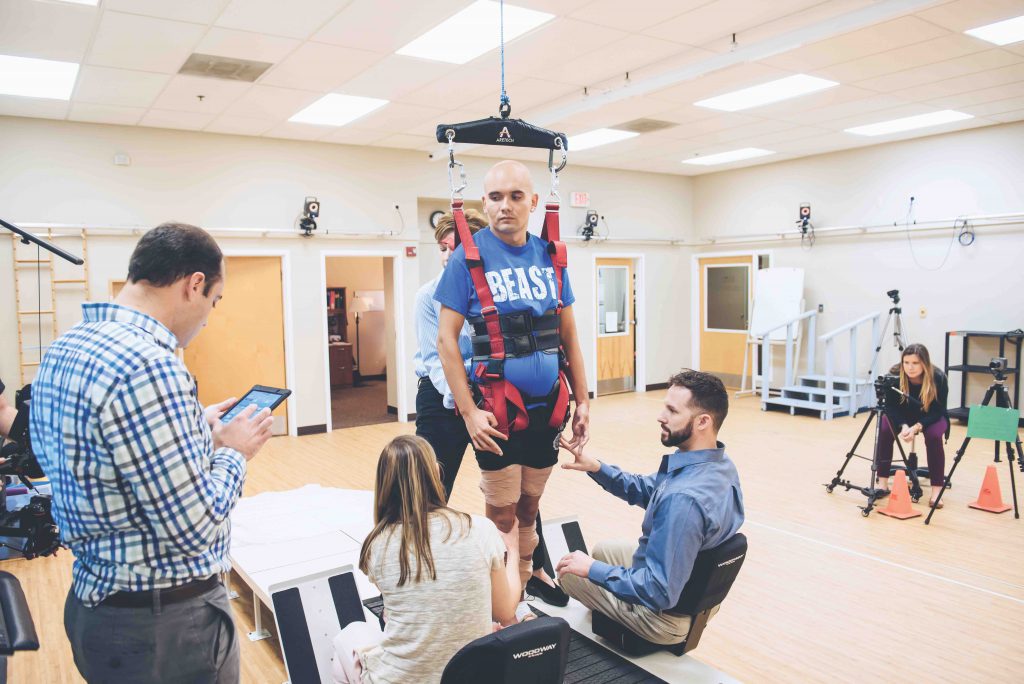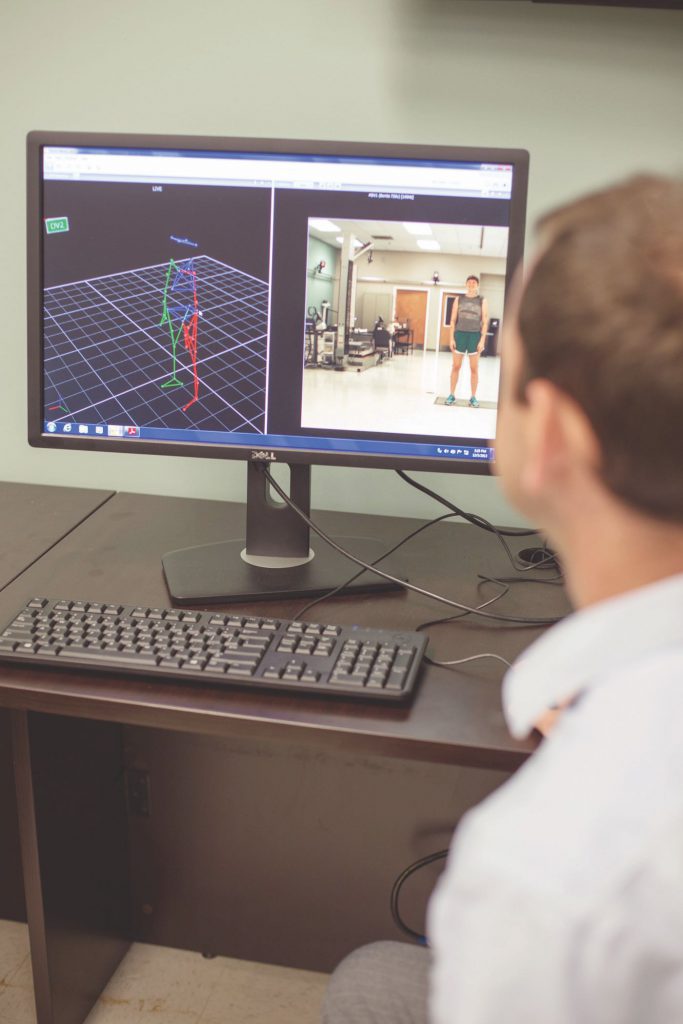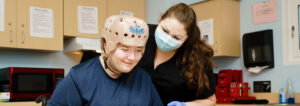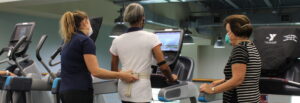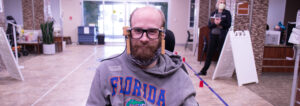Rehabilitation Research
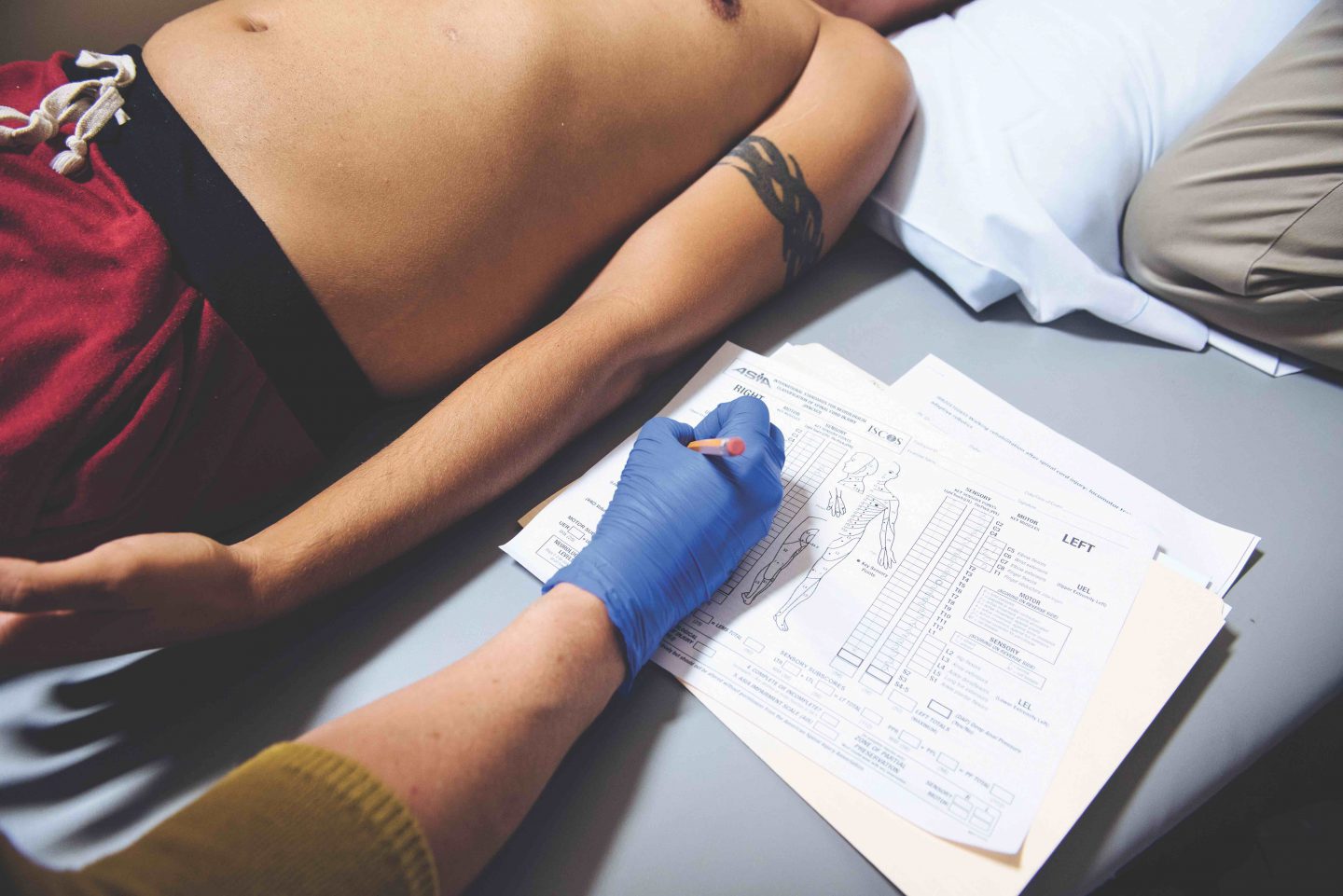
Back to physical health resource hub
Most people associate Brooks Rehabilitation with our many public-facing services, programs and locations, but they are unaware that research is an important and growing area for us. “By contributing to rehabilitation science, Brooks is part of the cutting edge,” says Raine Osborne, PT, DPT, OCS, FAAOMPT, director of the Brooks Rehabilitation Clinical Research Center. “Conducting research is valuable for our clinical staff and draws top talent to Brooks. The advanced knowledge and innovative technology resulting from our research will mean better care for our patients.”
Research had its start at Brooks in 1999, when researchers from the University of Florida College of Public Health and Health Professions (UF-PHHP) began conducting research at Brooks. The Brooks Rehabilitation Clinical Research Center formed as its own entity in 2010. In 2013, Brooks and UF established a formal partnership agreement – the Brooks/UF-PHHP Research Collaboration – for research at both sites and recently renewed the agreement for another five years. “To date, the Brooks/UF-PHHP Research Collaboration has generated more than 100 publications and $4 million in grants,” says Osborne.
Research performed at Brooks is already having an impact on patient care:
- Studies by Brooks/UF-PHHP research scientists Jason Beneciuk, PT, DPT, PhD, MPH, and Joel Biaolsky, PT, PhD, have helped Brooks clinicians identify patients’ at risk for developing chronic pain and tailor individualized treatment strategies for them.
- Brooks/UF-PHHP research scientist Emily Fox, PT, DPT, PhD, NCS, and Brooks’ clinician-scientist Kathryn Cavka, PT, DPT, NCS, are conducting research to help individuals with spinal cord injuries improve their breathing ability and wean off mechanical ventilators more quickly.
- Dorian Rose, PT, PhD, another Brooks/UF-PHHP research scientist, and Brooks neuromuscular research program coordinator Lou Demark, PT, DPT, NCS, have developed a backward walking treatment to improve walking and reduce falls after a stroke. Brooks clinicians are starting to use this promising treatment in clinical practice.
Creating a relationship between clinical practice and research is an important focus of the Brooks Clinical Research Center. “Engaging clinicians in the process generates better research and the opportunity to apply that research in practice more quickly,” says Osborne. “Through the Brooks/UF-PHHP Research Collaboration and Brooks-sponsored grants, our clinicians have a variety of opportunities to advance new ideas, serve as members of research teams and ultimately contribute to rehabilitation science.”
What does the near future hold for rehabilitation science? “Predicting outcomes using ‘big data’ comes to mind first,” says Osborne. “If our patient has certain symptoms and characteristics, what outcomes can we expect based upon thousands and thousands of records documenting similar situations?”
The Brooks Rehabilitation Clinical Research Center will continue expanding the knowledge of rehabilitation science, technology and clinical practice. “I enjoy coming to work every day,” says Osborne. “Research is all about constant learning – and that really excites me.”
Learn more about research at Brooks.
